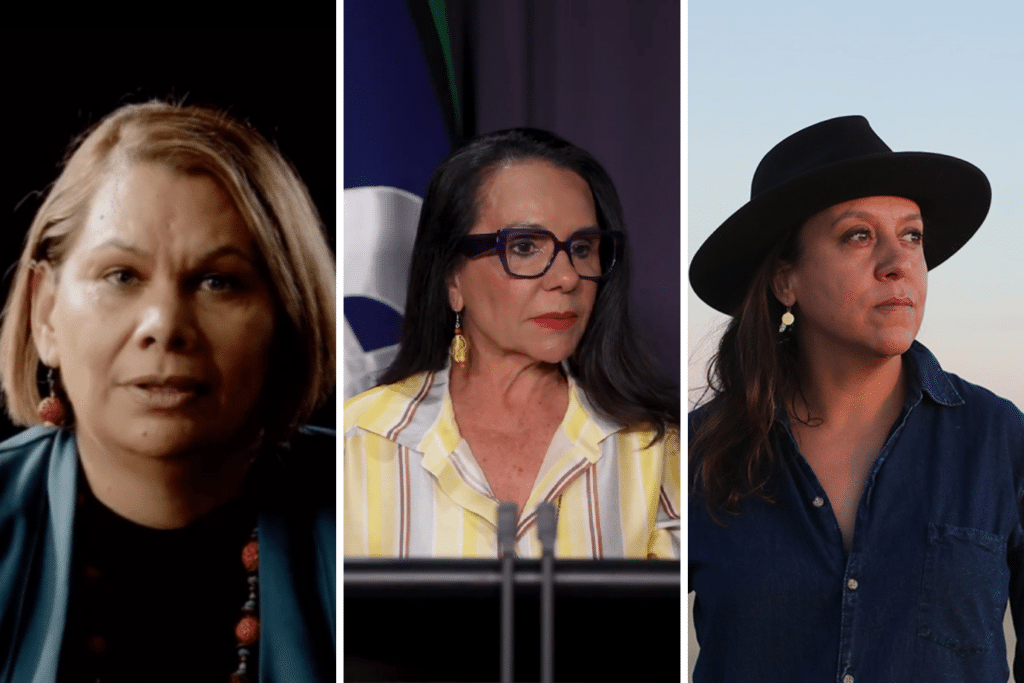Indigenous leaders of the ‘Yes’ campaign have asked for a ‘Week of Silence’ to grieve the outcome of the referendum, noting they need to “re-gather our strength and resolve”.
On Saturday, the referendum on the Voice was defeated with a 39.4 per cent ‘Yes’ vote and a 60.6 per cent ‘No’ vote nationally. Every state also recorded a majority ‘No’ vote.
Filmmaker and Co-chair of Yes23, Rachel Perkins issued the statement on her Instagram page on Saturday on behalf Indigenous Australians who supported the referendum, writing: “We are calling for a Week of Silence from tonight (Saturday 14th October) to grieve this outcome and reflect on its meaning and significance. We will not be commenting further at this time.”
“We will be lowering our Aboriginal and Torres Strait Islander flags to half-mast for the week of silence to acknowledge this result. We ask others to do the same”.
The statement wrote of a “bitter irony” — that those who have only been on this continent for 235 years had refused to recognise those who have been here for more than 60,000 years, calling it “beyond reason”. It spoke of the need to deeply consider the consequenes of the outcome and the role of racism and prejudice against Indigenous people in the result of the referendum.
“It was never in the gift of these newcomers to refuse recognition to the true owners of Australia. The referendum was a chance for newcomers to show a long-refused grace and gratitude and to acknowledge that the brutal dispossession of our people underwrote their every advantage in this country.”
The statement posted by Perkins also said that with the rejection of the referendum, it is now clear where First Nations people stand “in our own country” and they will look to establish a new direction, one that focuses on the need for justice and rights.
“We will not rest long. Pack up the Uluru Statement from the Heart. Fly our flags low. Talk not of reconciliation and recognition. Only of justice and the rights of our people in our own country,” it said.
“Things no one else can gift to us, but to which we are entitled by fact that this is the country of our birth and inheritance.”
After the referendum’s defeat, Minister for Indigenous Australians Linda Burney acknowledged how tough the process had been on First Nations people and that the government would work toward practical outcomes.
“To all Aboriginal and Torres Strait Islander people, I want to say this: I know the last few months have been tough. Be proud of who you are. Be proud of your identity. Be proud of the 65,000 years of history and culture that you are a part of,” Burney said.
“This is not the end of reconciliation. Because we all agree we need better outcomes for First Nations people.
“We need to keep listening to Indigenous Australians about what works and what can make a practical difference for the next generation.”
Elsewhere, Western Australia Senator Dorinda Cox acknowledged the “formidable strength” of First Nations people. On Instagram, she changed her profile picture to a black tile.
“The campaign has demonstrated the need for truth-telling. The misinformation and fear by conservative figures like Peter Dutton has been devastating,” Cox wrote. “We could not have an honest conversation about First Nations justice in this campaign.”
“This nation needs to have an honest and informed discussion about its history so we can speak the truth, heal and move forward together.
“We need truth-telling and Treaties built on the recognition of Indigenous peoples’ inherent sovereignty, which has never been ceded.”
As federal parliament resumes this week, it’s been reported that cabinet will meet to discuss next steps following the referedum’s defeat. Specifically, about whether the government will establish an interim mechanism that would see Indigenous advice delivered to the prime minister in the absense of a Voice.
With Indigneous leaders requesting a week of silence, it is expected the government will focus on other legislative matters in parliament before reconveing with Indigenous representatives on how best to deliver practical outcomes for the structural issues facing First Nations people.
With the nation rejecting the enshrinement of a Voice into the federal constitution, there may now be greater focus placed on state-based recognition and treaties. A number of states have already commenced work on their own mechanisms, including voices and treaties.
Independent Senator Lidia Thorpe, who always opposed the referendum, has said that the next steps need to focus on truth-telling and treaty. She has also suggested that the government could implement the recommendations from the royal commission into Indigenous deaths in custody, referring to these deaths as her “war”.
“We need to end that war and the only way we can do that is through truth-telling, healing, and ultimately, a treaty because that’s the only thing left for us,” she told ABC radio.
“And that’s what will truly unite this nation and have us all come together to celebrate something we all agree on.”
Thorpe also spoke about rebuilding from the grassroots level and advocated for the possibility of reserving seats in the Senate specifically for First Nations representatives.
“We have to not allow our people to be so downtrodden once again because that seems to be repetitive in this country. It’s part of colonisation,” she said. “We need to rebuild, and rebuild at the grassroots level.”
“You know, all Aboriginal people I have spoken to don‘t want deaths in custody to continue. They don’t want the continuation of the stolen generation.
“You don‘t need a referendum for a treaty. And you don’t need a referendum for extra Senate seats in the parliament. I’d rather have Black fellas as senators with a vote that can change this nation than some advisory body with no teeth.”


